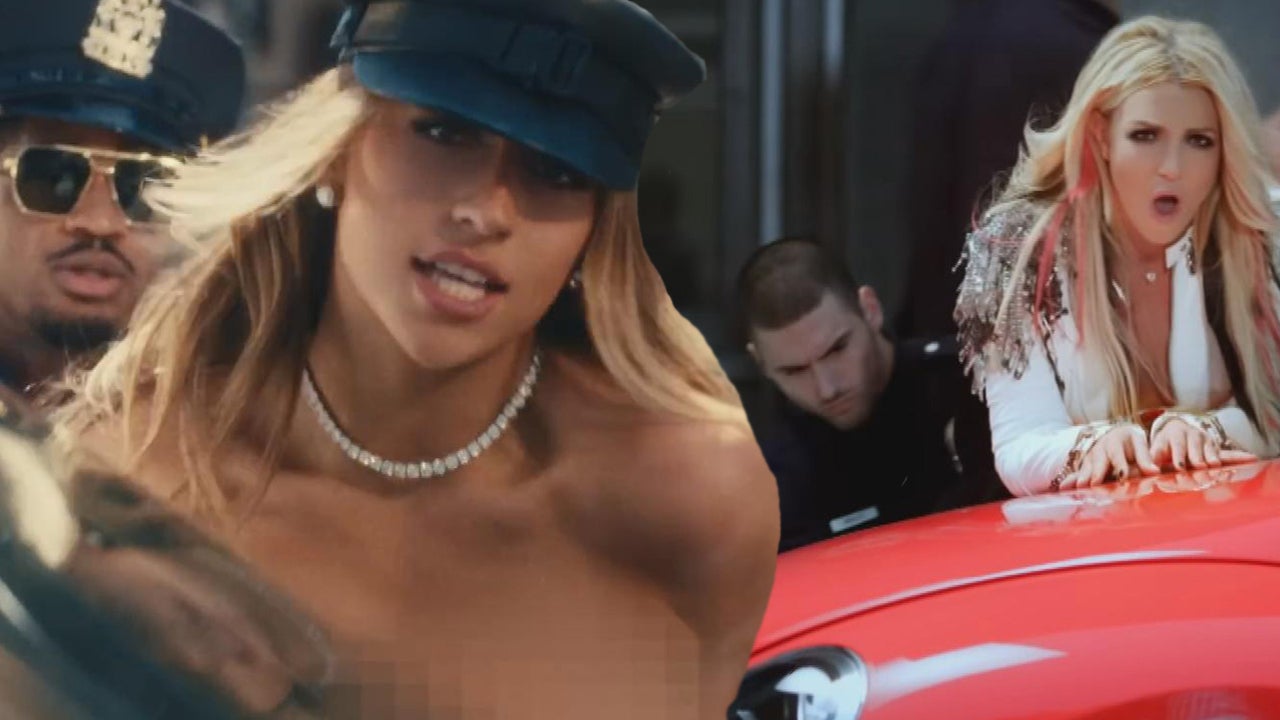
Tate McRae, the rising star in the music scene, has stirred quite a conversation with her latest music video for “It’s ok I’m ok,” which is steeped in a mesmerizing homage to pop legend Britney Spears. Within this cheeky visual narrative, McRae boldly showcases her vulnerability, leading to an unexpected twist: her character gets arrested. This audacious concept resonates with the complexities of mental health and self-acceptance—an affirmation of being perfectly imperfect.
The video is a colorful nod to the iconic pop and media culture that has shaped the careers of many artists, including Spears, whose unique flair for performance remains unwavering. McRae, with her burgeoning artistry, leverages this moment to delve deep into the realness of emotional struggles under the veneer of stardom. The blend of playful aesthetics and stark reality creates a compelling juxtaposition, allowing viewers to connect with the emotions expressed.
Not one to shy away from dramatic moments, the video offers engaging visuals that echo a mix of nostalgia and contemporary issues, captivating audiences who crave authenticity in today’s music landscape. Just like Spears, whose career has faced its highs and lows, McRae’s artistic journey embarks on this exploration of resilience, offering a refreshing perspective on the importance of mental wellness against the backdrop of fame.
As we explore more in entertainment, we find fascinating tales of other personalities. From Anna Delvey matching her ankle monitor to her costumes on “Dancing With the Stars” to Ashley Park’s live television mishap—there’s a rich tapestry of stories that confirm the unpredictable nature of celebrity life. Each narrative unfolds like a chapter in an ever-evolving script of fame and misfortune, reminding us of the human experiences behind the glitz.
In this ever-changing realm, we look towards personalities like Justin Timberlake, who recently faced scrutiny over his public handling of a DWI incident, and Diddy, who finds himself enveloped in allegations that could alter his legacy. These stories serve as poignant reminders of the fragility of reputation amidst the frenetic pace of contemporary media.
McRae’s poignant representation in her new video comes as a necessary discourse on the realities that many artists navigate. It beckons a broader understanding of the emotional weight that often accompanies fame, urging audiences to reflect not just on the spectacle but on the emotional landscapes artists traverse. As the conversation around mental health continues to unfold, McRae’s artistic choices resonate deeply, capturing the essence of contemporary artistry that reflects both light and shadow.






